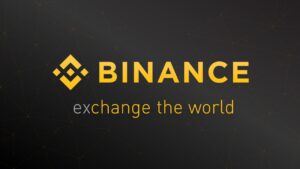Cryptocurrency adoption in Ghana is growing steadily, as more people explore digital currencies for investment and financial inclusion. Cryptocurrencies like Bitcoin (BTC), Ethereum (ETH), and others offer new opportunities for Ghanaians looking to diversify their investments and engage in cross-border transactions. This guide will provide all the information you need to buy cryptocurrencies in Ghana, including exchanges, payment methods, and security tips to protect your investments.
1. Introduction to Cryptocurrencies
Cryptocurrencies are digital or virtual currencies that use cryptography for security. They operate on decentralized networks, typically using blockchain technology. Bitcoin, the first and most widely recognized cryptocurrency, was launched in 2009. Since then, many other cryptocurrencies like Ethereum, Litecoin, and Ripple have been created.
In Ghana, cryptocurrencies are becoming an increasingly popular investment option due to their potential for high returns and their ability to facilitate international payments. With the increasing adoption of mobile money and digital payments, Ghanaians are well-positioned to embrace cryptocurrencies as an alternative to traditional banking systems.
2. Regulatory Environment in Ghana
Ghana has not yet established specific regulations for cryptocurrencies. However, the Bank of Ghana has issued warnings about the risks of investing in cryptocurrencies, particularly due to their volatility and the lack of investor protection. Despite this, cryptocurrencies are not illegal in Ghana, and many people actively buy and trade digital assets.
It’s important to stay updated on the regulatory environment, as the government may introduce laws or guidelines for cryptocurrency use in the future. As of now, cryptocurrencies are largely unregulated, and individuals can freely buy, sell, and trade digital assets.
3. Best Cryptocurrency Exchanges for Ghana
Several international cryptocurrency exchanges allow users from Ghana to buy, sell, and trade cryptocurrencies. Here are some of the best platforms:
- Binance: Binance is one of the largest cryptocurrency exchanges globally
 and supports users in Ghana. It offers a wide range of cryptocurrencies and payment options, including peer-to-peer (P2P) trading, which is ideal for Ghanaians.
and supports users in Ghana. It offers a wide range of cryptocurrencies and payment options, including peer-to-peer (P2P) trading, which is ideal for Ghanaians.
- Coinbase: Coinbase is a user-friendly exchange that allows users to buy cryptocurrencies with credit or debit cards. While it may not support direct payments from Ghanaian banks, you can use P2P platforms as an alternative.
- Paxful: Paxful is a popular peer-to-peer exchange that supports various payment methods, including mobile money, bank transfers, and gift cards. It’s widely used in Ghana for buying and selling Bitcoin and other cryptocurrencies.
- LocalBitcoins: LocalBitcoins is another well-known P2P exchange where users can buy and sell Bitcoin and other cryptocurrencies directly with others. It supports local payment methods, such as mobile money and bank transfers.
4. Payment Methods in Ghana
There are several ways to buy cryptocurrencies in Ghana, and payment methods are quite flexible. Some of the common methods include:
- Bank Transfers: Some exchanges, like Binance, allow users to deposit funds through bank transfers. However, this method may take longer compared to other options.
- Credit/Debit Cards: Exchanges like Coinbase and Binance allow you to buy cryptocurrencies using your credit or debit card. This is a fast and convenient option, although it may come with higher fees.
- Mobile Money: Mobile money services like MTN Mobile Money and Vodafone Cash are widely used in Ghana. These services are compatible with peer-to-peer platforms like Paxful and LocalBitcoins, making it easier for Ghanaians to buy cryptocurrencies.
- Peer-to-Peer (P2P) Payments: Platforms like Paxful and LocalBitcoins allow you to buy cryptocurrencies directly from other individuals using local payment methods such as mobile money, bank transfers, and cash deposits.
5. How to Buy Cryptocurrency in Ghana
Here’s a step-by-step guide to help you buy cryptocurrencies in Ghana:
- Choose a Cryptocurrency Exchange: Select an exchange that supports users from Ghana. Binance, Coinbase, Paxful, and LocalBitcoins are good options to consider.
- Create an Account: Sign up for an account on the exchange by providing your email address, creating a secure password, and completing any identity verification (KYC) processes, if required.
- Deposit Funds: Deposit funds into your account using your preferred payment method. Options include mobile money, credit cards, or bank transfers, depending on the platform.
- Select Your Cryptocurrency: Choose the cryptocurrency you want to buy. Bitcoin (BTC), Ethereum (ETH), and Litecoin (LTC) are popular choices among Ghanaians.
- Place Your Order: After selecting your cryptocurrency, place your order. Once your transaction is completed, your cryptocurrency will be transferred to your wallet.
6. Storing Your Cryptocurrency Securely
Once you’ve purchased cryptocurrencies, it’s important to store them securely. There are different types of wallets to choose from:
- Hardware Wallets: Hardware wallets like Ledger and Trezor are physical devices that store your cryptocurrencies offline, offering the highest level of security.
- Software Wallets: Software wallets, such as Trust Wallet and Exodus, are applications that you can install on your mobile phone or computer. They provide a good balance between security and convenience.
- Exchange Wallets: Some exchanges like Binance offer wallets to store your cryptocurrencies. However, for enhanced security, it’s recommended to transfer your assets to a private wallet.
7. Engaging with Crypto Communities in Ghana
Ghana has a growing cryptocurrency community, and there are many ways to connect with other enthusiasts. You can join online forums and social media groups on platforms like Telegram, Reddit, and Twitter to stay updated on the latest trends, news, and opportunities in the cryptocurrency space.
There are also local meetups and events where you can network with other crypto enthusiasts and learn more about blockchain technology and investment strategies.
8. Avoiding Scams and Fraud
As with any financial market, the cryptocurrency space can be prone to scams and fraud. Here are some tips to help you stay safe:
- Use Trusted Exchanges: Stick to well-known exchanges like Binance, Coinbase, and Paxful, which have established reputations for security and reliability.
- Enable Two-Factor Authentication (2FA): Always enable 2FA on your accounts to protect against unauthorized access.
- Use Escrow Services: When trading on peer-to-peer platforms, always use the escrow service to ensure both parties meet their obligations.
- Avoid Unrealistic Promises: Be cautious of offers that seem too good to be true. Scammers often make false promises of high returns to lure victims.
9. Tax and Legal Considerations
Currently, Ghana does not have specific tax laws related to cryptocurrencies. However, the Ghana Revenue Authority (GRA) has indicated that they are monitoring cryptocurrency transactions. It’s important to keep track of your transactions, as the government may introduce tax regulations for cryptocurrency in the future.
If you are unsure about your tax obligations, it’s a good idea to consult with a local tax professional to ensure compliance with any future regulations.
10. The Future of Cryptocurrencies in Ghana
Cryptocurrency adoption in Ghana is expected to grow, especially as mobile money services continue to expand. With a young and tech-savvy population, Ghana has the potential to become a hub for cryptocurrency adoption in West Africa.
As the government begins to establish clearer regulations, more opportunities will arise for local businesses and investors to participate in the cryptocurrency market.
Final Thoughts
Cryptocurrencies are an exciting investment opportunity for Ghanaians looking to diversify their financial portfolios and engage in global transactions. By following the steps outlined in this guide, you can safely buy, store, and trade cryptocurrencies in Ghana. Always stay informed about regulatory changes and take the necessary precautions to protect your investments.


 supports a wide variety of cryptocurrencies, including Bitcoin. It offers multiple payment methods such as bank transfers, credit cards, and peer-to-peer (P2P) transactions.
supports a wide variety of cryptocurrencies, including Bitcoin. It offers multiple payment methods such as bank transfers, credit cards, and peer-to-peer (P2P) transactions.